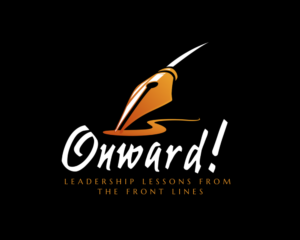I remember getting my first performance review. I was 23 years old and had been an Airborne Rife Platoon Leader for about six months. I thought things were going great. Our platoon was performing well and had earned a reputation as being one of the better units. I was learning a ton and felt like I was starting to get the hang of it. So I walked into my commander’s office with hopes of an “Atta boy.” It was not to be.
I entered my commander’s office and saluted. He told me to “take a seat” and handed me a printout. It was seven pages long, typed, and single-spaced. It was titled, “Azimuth Check”, a term used by leaders in the Army to make sure that their subordinates were headed in the right direction. The first section was called “Strengths” which had three or four short bullet points. The next 6 ⅔ pages were filled with “Areas for Improvement” and “Ways to Improve.” It was exceptionally detailed. It contained such things as improving my writing skills (“weak and verbose”), my physical fitness (below his standards), the neatness of my dress (“You need to set the standard. You aren’t right now.”), and how I briefed operations orders (“Confusing”). My favorite was about how I received orders I didn’t like. “When I ask you to do something that you don’t want to do, you say ‘Yes Sir’ but you look at me like you want to kill me. That has to stop.”
For a young Ivy League honors graduate who had gone straight through Airborne and Ranger Schools and was only five points away from a perfect physical fitness score, the two-hour session was a brutal assault on my ego. I signed the paper, took a copy, and left. I was hurt, humiliated and angry.
I called my parents that night and relayed the experience. My new commander was an a**hole who clearly had no idea what he was talking about. Who the hell was he to tell me I needed to improve my writing? My parents listened quietly and asked me to send a copy.
When I next spoke to my parents, their reaction shocked me. “Your boss absolutely nailed you!” they laughed. “He clearly has you figured out.” As I started to explain how terrible he was, they cut me off. “Maybe you could put your ego aside for a moment. He clearly cares about you. Think about how much time he spent preparing that. Seven pages! He put a lot of thinking and time into writing it. He clearly cares about helping you get better. Maybe you should put your ego aside and listen to him.”
I swallowed my pride, re-read the document, and began working on the things he listed. 25 years later, I am still working on some of them. But I became a much better platoon leader as a result.
That first review has served me well since, not just for its brutal honesty but for the care its preparation showed and the roadmap to improvement it provided. If done properly, good, thorough, and honest feedback from your manager can be one of the best tools to improve your performance. Indeed, the best leaders I have worked for all challenged me through some type of formal process; they cared enough to tell me where and how I could get better.
A successful professional development discussion has several pieces:
- Intent matters. The only goal of professional development is to help the person get better. That’s it. It naturally involves some evaluation of the person but the goal is improvement not rating. Importantly, it should be independent of discussions about pay raises or bonuses.
- Formal. While formal reviews are out of fashion, I like them. I love the short and constant feedback as a part of leadership but they shouldn’t be at the expense of a dedicated process that requires leaders to take the time to formally think about and present feedback. The dedicated time and process ensure that the focus of the discussion is on the improvement of the junior leader. Importantly, you don’t have to wait for you company to implement to do this.
- Written. The feedback must be written, even if kept separate from the formal review file. Written feedback accomplishes three things. First, it forces the senior person to clarify their thoughts. I can still hear that commander’s advice to me. “Listen to your gut, though it takes time to actually figure out exactly what it is saying…and then write it down.” Second, it forces tough conversations. I want to be liked, so providing tough feedback or discussing areas for improvement is difficult for me. If I’ve written it down and know I’m going to provide a copy at the end, I have to talk to it. I have to look them in the eye and explain. It’s tough but worth it. Finally, written feedback is something they can take away and re-read.
- Specific. One of my old leadership coaches says, “The greatest source of frustration is unmet expectations.” You need to be specific about what they are doing right or wrong. I can’t fix, “you suck” or “That was terrible” but I can fix specific behaviors or specific actions that caused issues or fell short. The key to providing detailed examples is taking good notes throughout the year (after the struggle of providing specifics your first time, you’ll start to do this), so you don’t have to remember them at the end.
- It answers five questions:
What is going right? Talk about the great stuff they should keep doing.
Ways they can improve? Talk about the ways in which they can get better. Critically, even high performers have plenty to work on (and tend to appreciate the feedback more).
Where do they want to be in five years? The employee gets to answer this. It’s their career and they get to define success for themselves at this point in their lives and at this point in their career.
What do they need to do to get there? You both answer this.
What can I do to help them get there? You both answer this.
The challenge with this type of development is effort. My parents were right – good reviews take effort. I take about two hours of dedicated time per review to prepare and reserve about 90 minutes for each conversation. That’s a lot of time, but worth it. This is where I see the struggle with so many leaders – they are too caught up in the whirlwind of “doing” their job that they forget the most important part of their job as leaders is helping their people improve. It is also far easier to answer emails than doing some hard thinking and having crucial conversations. If you approach the meeting with the goal of helping them get better, they will appreciate the effort. You’ll be a stronger leader for the work and if they take the message to heart, will be a better teammate as well.
Onward!
Jeff





